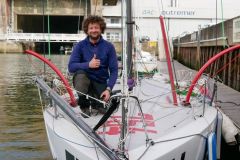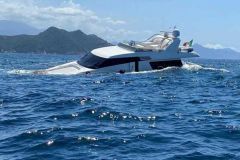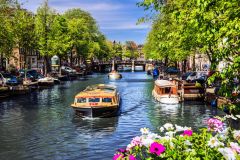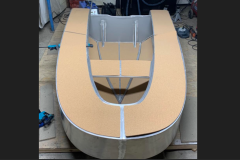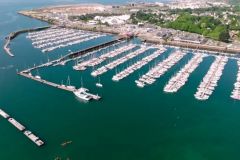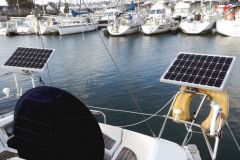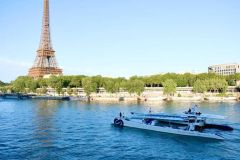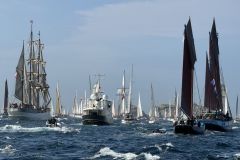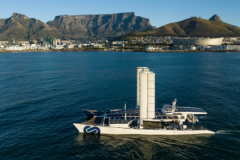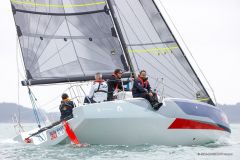It is a huge project to develop an industrial sector of renewable maritime energy that should be created on the Brest polder. Financially supported by the State, the Brittany Region, the Finistère General Council and Brest Métropole Océane, this project should make Brest a key player in this field.
The France Énergies Marines headquarters
The Institute of Excellence in Decarbonated Energies (IEED) is managed from Brest by Ifremer and works on the development of renewable marine energies through three main axes:
- Marine renewable energy (MRE) research;
- The coordination of offshore test sites with a site dedicated to tidal turbines (Paimpol-Bréhat) and a site dedicated to wave energy (Croisic);
- The creation of a resource and training center.
Currently, France Ãnergies Marines brings together 55 structures âeuros public actors such as Ifremer, UBO or CNRS and industrialists like DCNS, Technip, Sabella, Nass and Wind, Alstom or EDF.
DCNS is the only company to position itself in four technologies (floating wind turbines, tidal turbines, ocean thermal energy and wave power) and has therefore set up an incubator in Brest to pool and develop research and development investments in these technologies.
In addition, Ademe has already selected three projects for the construction of demonstrators that will see the light of day in Brest, Winflo with a floating wind turbine demonstrator and Sabella and Orca with a tidal turbine demonstrator project.
A 36-hectare industrial-port activity zone
The port of Brest intends to develop its assets, starting with suitable facilities, in order to become the most interesting site for the construction of offshore wind turbines, thanks to its polder and its large reception capacity. Supported by the Brittany Region, this project will cost approximately 134 million euros.
36 hectares will be dedicated to port industries and in particular to the reception of those linked to the marine renewable energy sector (MRE). Few ports in Europe can boast such easy maritime access (7/24). Not to mention that the surfaces incorporated into the project are all in one piece:
- Stabilization of a first platform of 17 hectares to be developed;
- Creation of 360 meters of industrial quay.
A strategic Atlantic port
The port of Brest is ideally situated to host a project of this scale, since it has efficient infrastructure and equipment. It also plays an important role in the development of intra-European maritime links and trans-European transport networks.
Finally, it is located near the future test sites dedicated to marine renewable energies and operated by France Énergies Marines :




